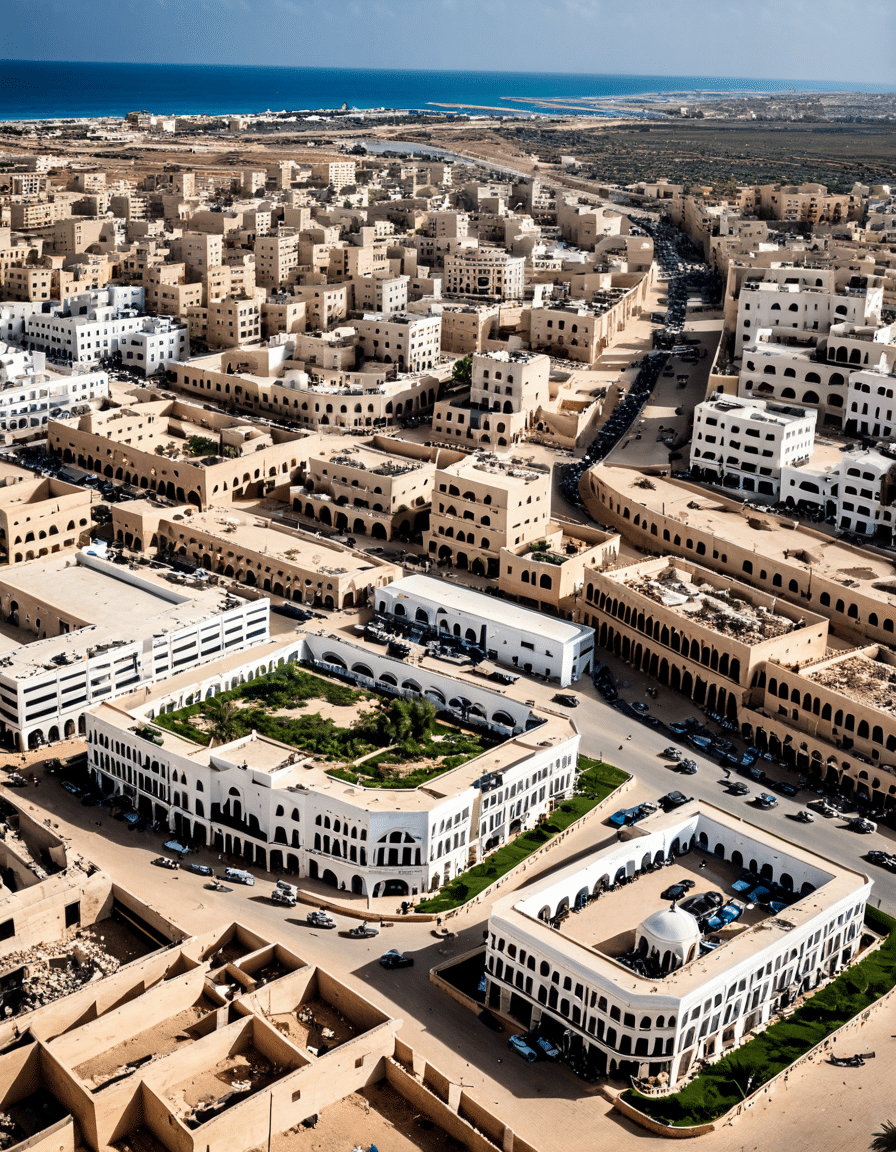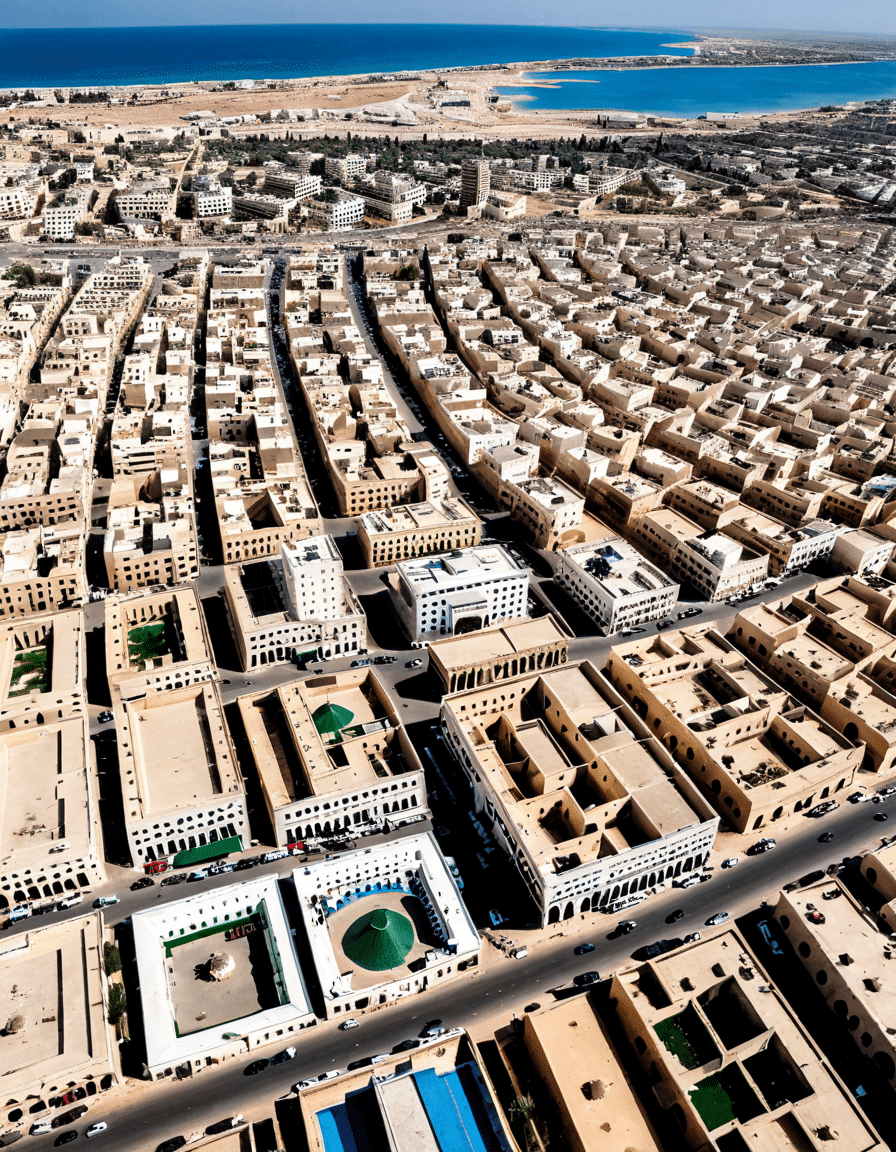
Benghazi’s Harrowing Truth Behind The Attack
On September 11, 2012, the world watched in shock as violence erupted in Benghazi, Libya. The Benghazi attack was not just a tragic incident; it was a culmination of rising tensions, political unrest, and foreign policy missteps that reshaped discussions surrounding security and diplomacy. As we explore the harrowing truth behind this attack, we’ll examine the critical events leading up to the tragic day, myth-busting the distorted narratives surrounding it, and uncovering the human stories that form its core.

The Mysterious Events Leading Up to the Benghazi Attack
In the preceding months before the Benghazi attack, the security situation in Libya deteriorated significantly. After the fall of Muammar Qaddafi, who ruled Libya with an iron fist for over four decades, the country spiraled into chaos. Rebel factions fought for control, and extremist groups began asserting their power amidst the turmoil. The lack of a stable government left Libyans vulnerable, and U.S. diplomats reported alarming signs of escalating violence.
Adding fuel to the fire, protests erupted across the Middle East in response to an anti-Islam film that sparked outrage. In Libya, these tensions transcended casual protest, as armed militants took advantage of the unrest. Reports circulated from diplomats in the region, signifying that warnings sent to Washington went unheeded. This negligence painted a grim picture, one suggesting that tragedy was on the horizon.
On the fateful night of September 11, chaos broke out in Benghazi. Militants launched a well-coordinated assault on the U.S. diplomatic mission and a nearby CIA annex. This was not a random outburst; rather, it was a meticulously planned attack rooted in a broader context of anti-American sentiment and grievances that had been simmering for years.

Top 7 Myths Surrounding the Benghazi Attack Exposed
The Benghazi attack has inspired a litany of myths, each distorting the truth about what really happened. Whether driven by political agendas or simply misinformation, it’s vital to dispel these misconceptions. Let’s dive into seven prevalent myths, one by one:
The Stories of Heroes: Analyzing the Lives of Victims and Survivors
To overlook the human angle of the Benghazi attack would be a grave injustice. The lives lost—each irreplaceable—were full of potential and commitment to their country. Among the victims was Glen Doherty, a former Navy SEAL who put everything on the line in efforts to save others. His heroism shone through amid chaos, with personal accounts from his family echoing the heartbreak of a life cut short.
Another notable figure was Tyrone Woods, who also fought valiantly during the attack. Stories like Woods’ and Doherty’s remind us of the selflessness exhibited that night. Survivors from both the American and Libyan communities share their accounts, highlighting the lasting impact of that tragic evening. They remind us that while statistics tell a story of loss, individual narratives illustrate the profound emotional toll this event exacted on many lives.
Families of the victims shared their struggles to find closure, advocating for greater awareness of the complexities surrounding diplomatic safety. As we uncover these stories, we see that the impact of the Benghazi attack extends well beyond the battlefield, shaping discussions about security reform and American foreign policy.
Political Fallout: The Impact on U.S. Foreign Policy and Election Campaigns
The political ramifications stemming from the Benghazi attack were vast, sparking intense debates during the 2012 presidential election. Candidates seized upon the incident, using it to frame narratives about national security—a hallmark of American political discourse. Mitt Romney, the Republican challenger, made Benghazi a key point in his campaign, questioning the Obama administration’s competency in foreign affairs.
The attack galvanized a polarized political environment, often overshadowing many aspects of foreign policy. In Congress, investigations into the attack became less about accountability and more a battleground for political parties. The public’s perception evolved as new details emerged, creating skepticism regarding transparency and government responsibility.
Ultimately, the Benghazi incident raised pressing questions about how America engages on the global stage. It forced policymakers to reckon with their responsibilities to protect diplomats and citizens abroad, propelling discussions that would resonate for years to come.
Lessons Learned: Policy Changes and Security Reforms Post-Benghazi
In the wake of the Benghazi tragedy, numerous reforms aimed at improving security protocols emerged. The Accountability Review Board was established to investigate the attack and recommend actions. One critical recommendation was to strengthen embassy and consulate security, specifically in volatile regions.
Policies that came from this review led to more stringent security measures for U.S. diplomatic missions worldwide, as officials learned from past mistakes. Increased funding and strategic allocations became paramount to safeguarding American lives abroad. For instance, many embassies revised emergency response protocols, integrating lessons from Benghazi to enhance overall security readiness.
However, questions linger about the effectiveness of these changes. Are these reforms sufficient? Some argue the solutions implemented merely scratched the surface rather than addressing fundamental issues surrounding foreign policy and security.
Beyond Benghazi: Current Implications in Middle Eastern Politics
As we reflect on the Benghazi attack in 2026, its implications extend into current Middle Eastern politics. Extremist groups remain prevalent, and discussions around the cyclical nature of violence continue to dominate conversations about U.S. foreign policy. The lessons from Benghazi resonate amidst ongoing diplomatic engagement in the region, reminding us of the need for a careful approach.
Recent events, such as the attack on Saudi oil facilities attributed to Iranian-backed militias, starkly illustrate how the issues surrounding Benghazi persist. Diplomatic challenges remain, as countries navigate complex relationships among various factions and regional powers.
Comparisons to other incidents solidify the understanding that past events like Benghazi condition future responses. U.S. diplomats must remain vigilant, understanding that maintaining peace in the Middle East is an intricate endeavor, as highlighted in recent conflicts and ongoing tensions.
The Media’s Role: How Coverage Shaped Public Perception of Benghazi
The media played an undeniable role in shaping public perception of the Benghazi attack. From investigative journalism that unveiled crucial details surrounding the incident to opinion pieces fueling the political debate, coverage swayed public sentiment. Major outlets, such as The New York Times and The Washington Post, confronted the undeniable complexities of the attack, emphasizing the need for transparency and accountability in government.
However, differing narratives from conservative and liberal platforms often skewed the perception of events. Public confidence swayed in reaction to how coverage framed the attack. Responsible journalism proved essential in refining narratives, making it clear that the conversation about Benghazi transcended politics; it was about human lives and accountability.
As we look toward a future informed by past events, the significance of ethical journalism becomes paramount. A well-informed public is vital in ensuring that tragedies like Benghazi incite meaningful reforms rather than political opportunism.
In examining the harrowing truth behind the Benghazi attack, we acknowledge its multifaceted implications ranging from personal loss to opportunities for political leverage. This tragedy illustrates the intricacies of international relations and the pressing need for vigilance in safeguarding not only American lives but also the essential narratives that shape our understanding of such events. As we further reflect on Benghazi in 2026, the importance of ongoing dialogue surrounding national security and geopolitical engagement cannot be overstated.
Benghazi: Trivia and Fascinating Facts
The Unforeseen Heroes of Benghazi
Did you know that among the turmoil during the Benghazi attack, some unexpected heroes emerged? Just like the quirky team dynamics in My Big Fat greek Wedding, the U.S. diplomats showed remarkable bravery and quick thinking that night. Despite the chaos, these individuals put their lives on the line, demonstrating heroism akin to that of a character you might see facing off against Mojo Jojo. It’s thrilling yet chilling to think about the lengths people will go to protect others, even when confronted with a dire situation.
A Shift in Perception
Post-attack, the narrative around Benghazi shifted significantly. This incident sparked numerous debates and investigations, much like the intricate plot of Ursula from The Little Mermaid, where themes of betrayal and truth prevail. It opened the door to discussions about U.S. foreign policy and national security. Interestingly, just as people might debate the impacts of culture portrayed by viral figures like Yk Osiris, the Benghazi attack highlighted the importance of understanding the ramifications behind international relations and the human cost involved in them.
The Human Factor
In reflecting on Benghazi, we can’t forget about the emotional toll it left behind. It reminds us of the complexity of everyday life, much like navigating through a Kid Named finger video—full of unexpected turns and serious moments hidden within humor. The personal stories of those affected by this tragedy serve as poignant reminders of the sacrifices made. Just like You Can Call Me al captures nostalgia through its catchy tune, the stories from Benghazi resonate, inviting us to remember that politics often involves real people with real lives at stake.
By embracing these fascinating facts and trivia, we not only honor the memory of those events but also strive to understand their lasting impact on our perception of safety and security in a constantly shifting world.










